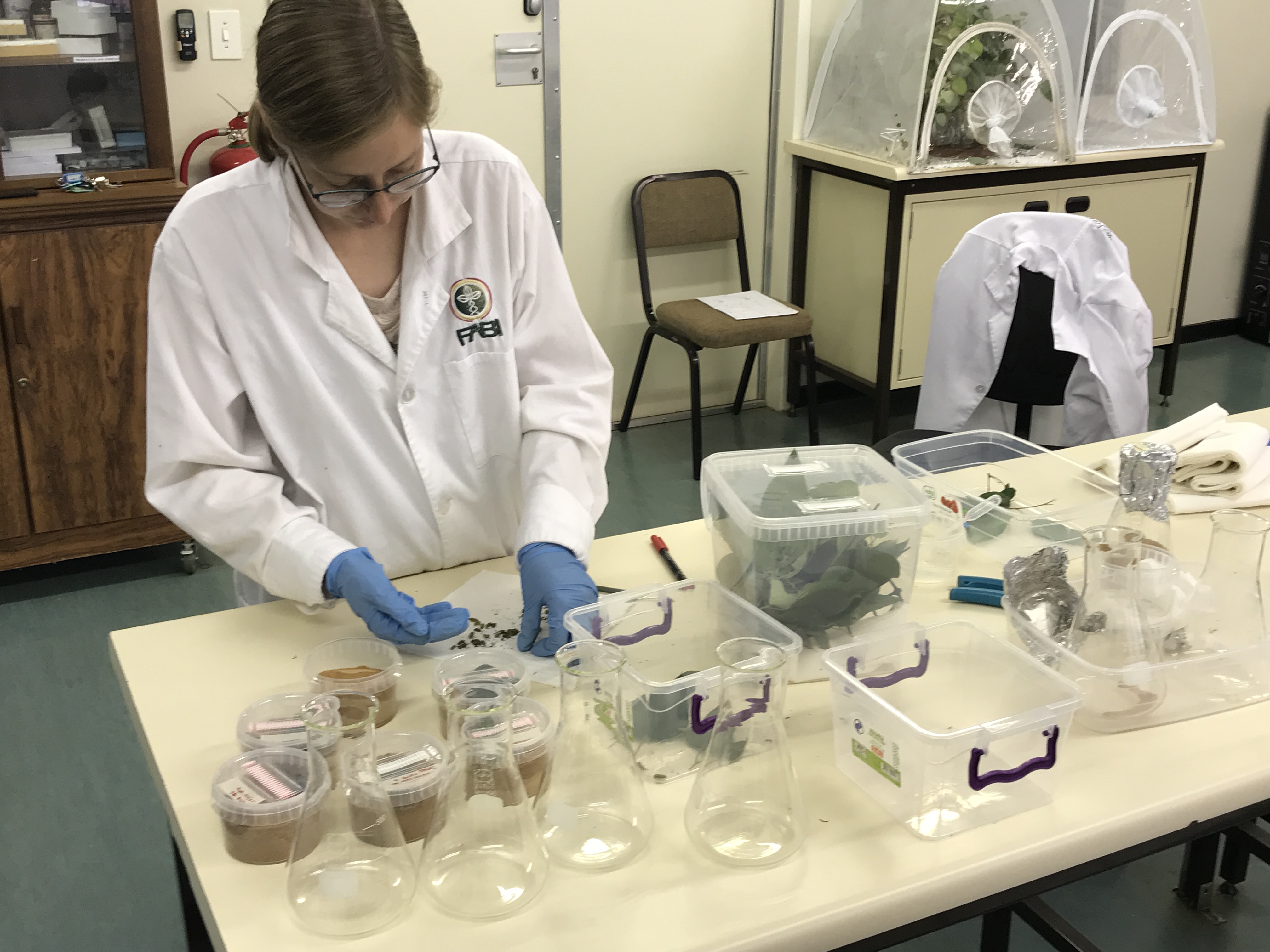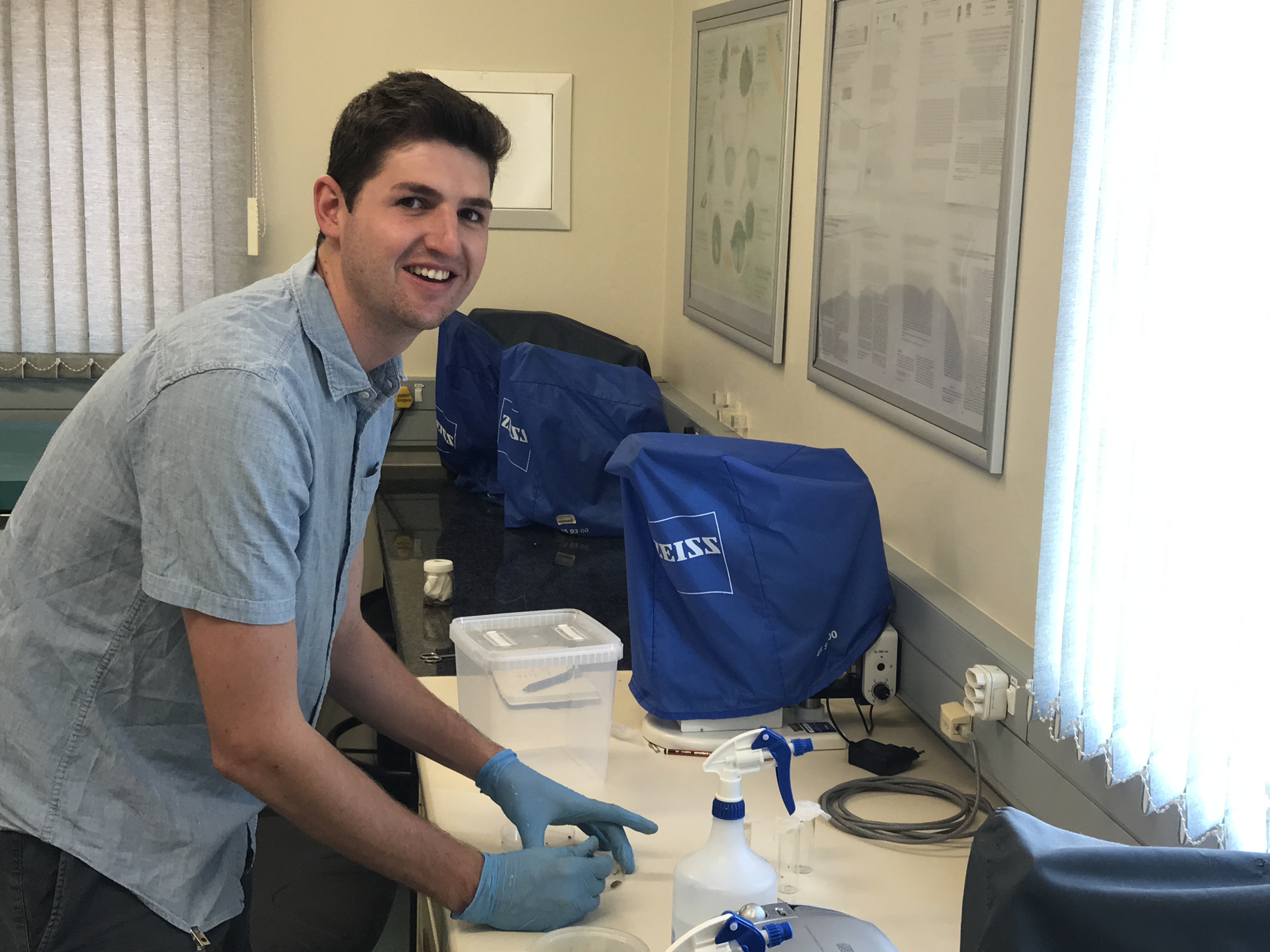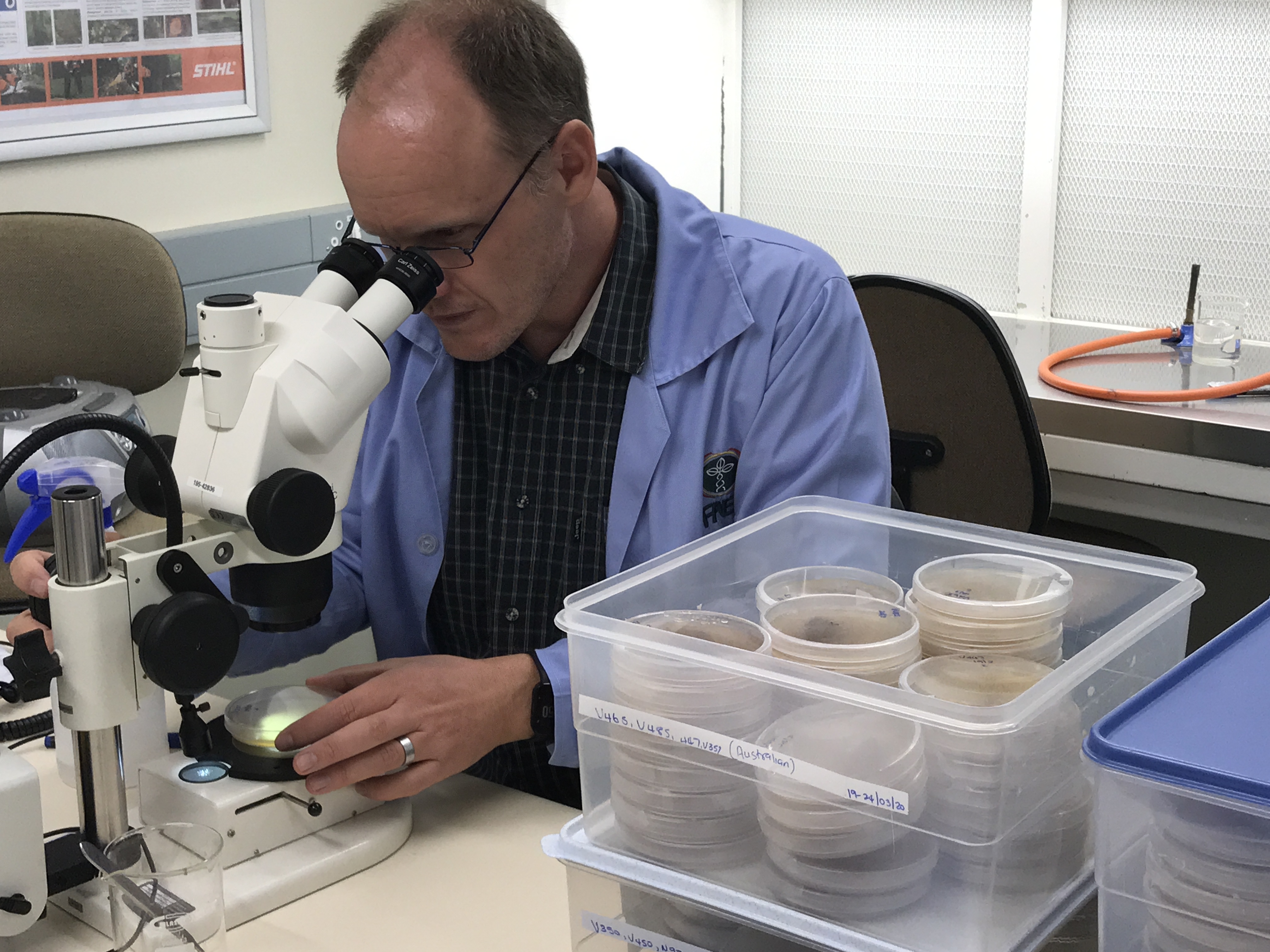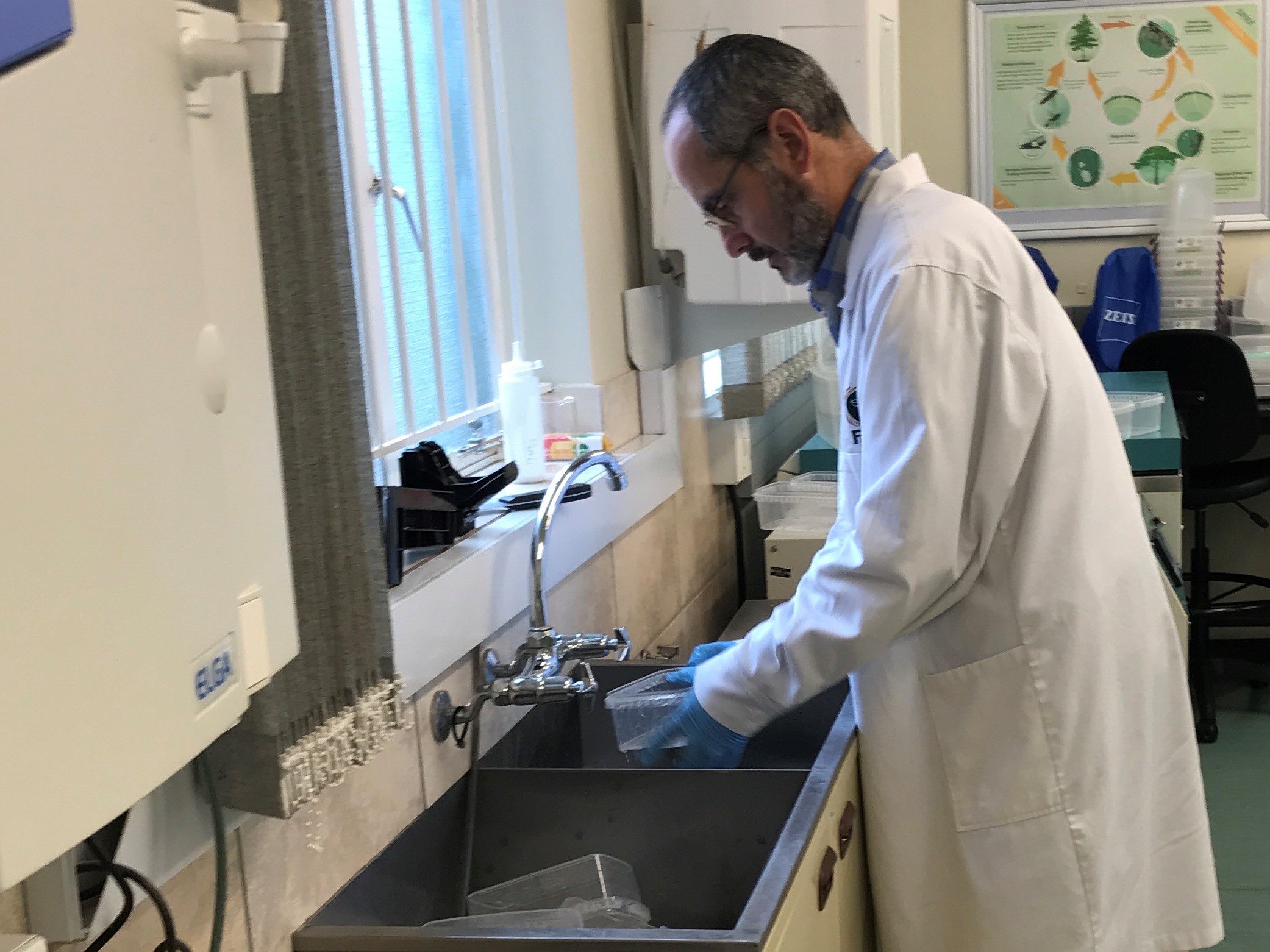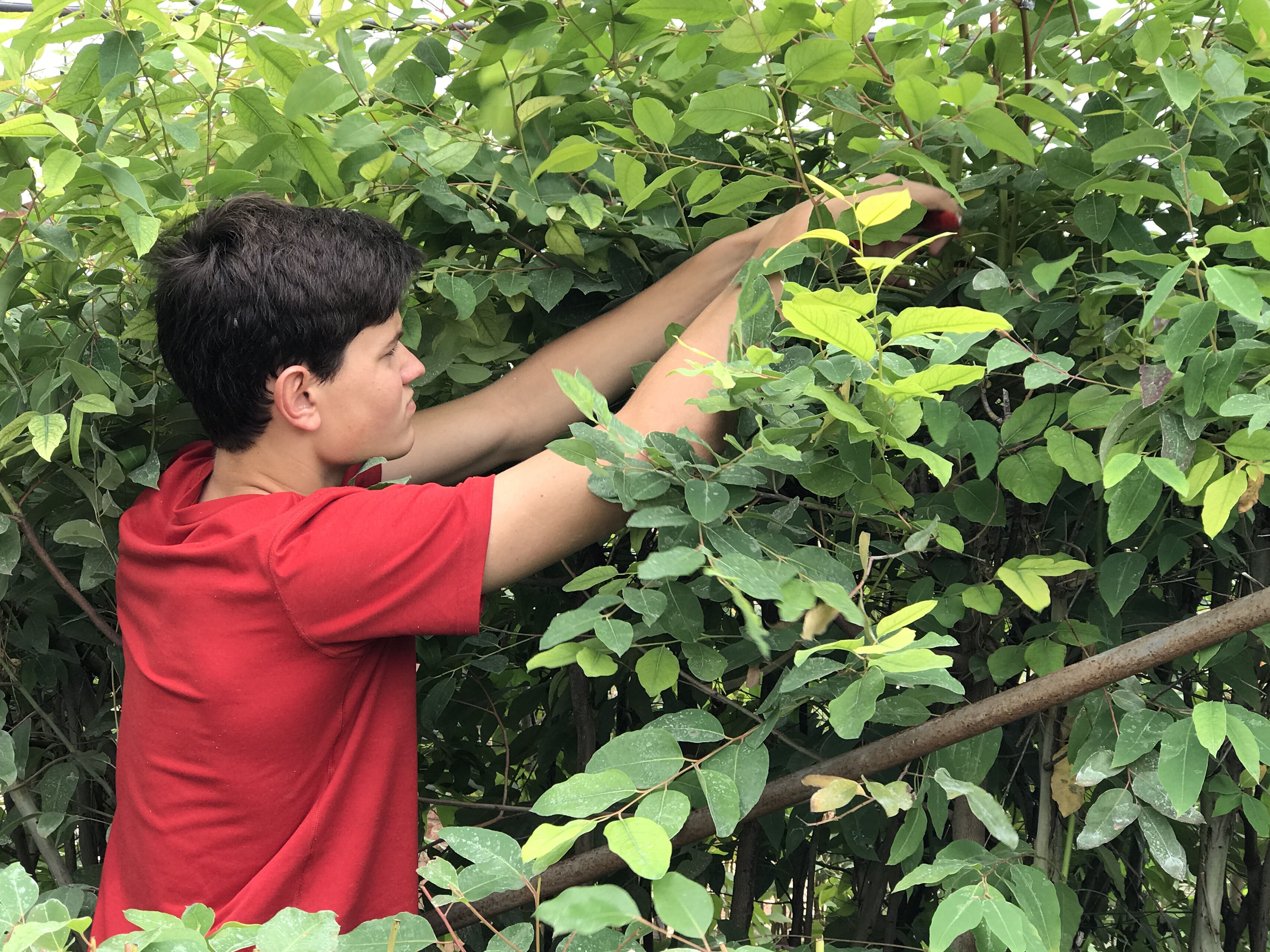Keeping the TPCP biocontrol research programme alive (literally) during lockdown 2020-04-20
The COVID-19 lockdown has had numerous impacts on active research programmes in FABI. Many field surveys and experiments had to be cancelled or postponed, laboratory work has come to a complete halt, and postgraduate students had to go home, some of them even abroad, for, at this stage, an unknown period of time. However, as always, FABIans adapted quickly and are making the most of working online from home, with student seminars, research and literature discussions, as well as many other meetings being conducted virtually.
The reality of working in the biological sciences is, however, that we are working with living organisms. Plants, insects, nematodes and fungi cannot be kept alive virtually. At the FABI Biocontrol Centre on the University's experimental farm, several living collections of organisms are being maintained, particularly for the TPCP biocontrol research. These collections are the essence of many commercially-important projects, and if they are lost, many years of research will be lost and millions of Rands will be wasted. Maintaining these collections is typically being done by a group of about 10 dedicated technical staff members. During the lockdown none of these staff members are allowed onto the campus, apart from two FABI staff members, Ms Samantha Bush and Prof Wilhelm de Beer, who live on the premises of the University.
They have taken on the responsibility to feed the insects and keep the research tree nursery going during this time. Samantha is working a full day every day in the centre and has compiled a carefully planned roster to make the completion of tasks as efficient as possible. She is assisted in the laboratories by Prof. Wilhelm de Beer and his student daughter, Petro, who work about three hours every weekday, feeding insects, while his 16 yr old son, Marthinus, is making sure that all the trees in the nursery are being watered. Prof. Brett Hurley, who has permission to access the facilities, and MSc student Matt Jackson, who lives in Future Africa on the premises, also assist in keeping the programme running.


